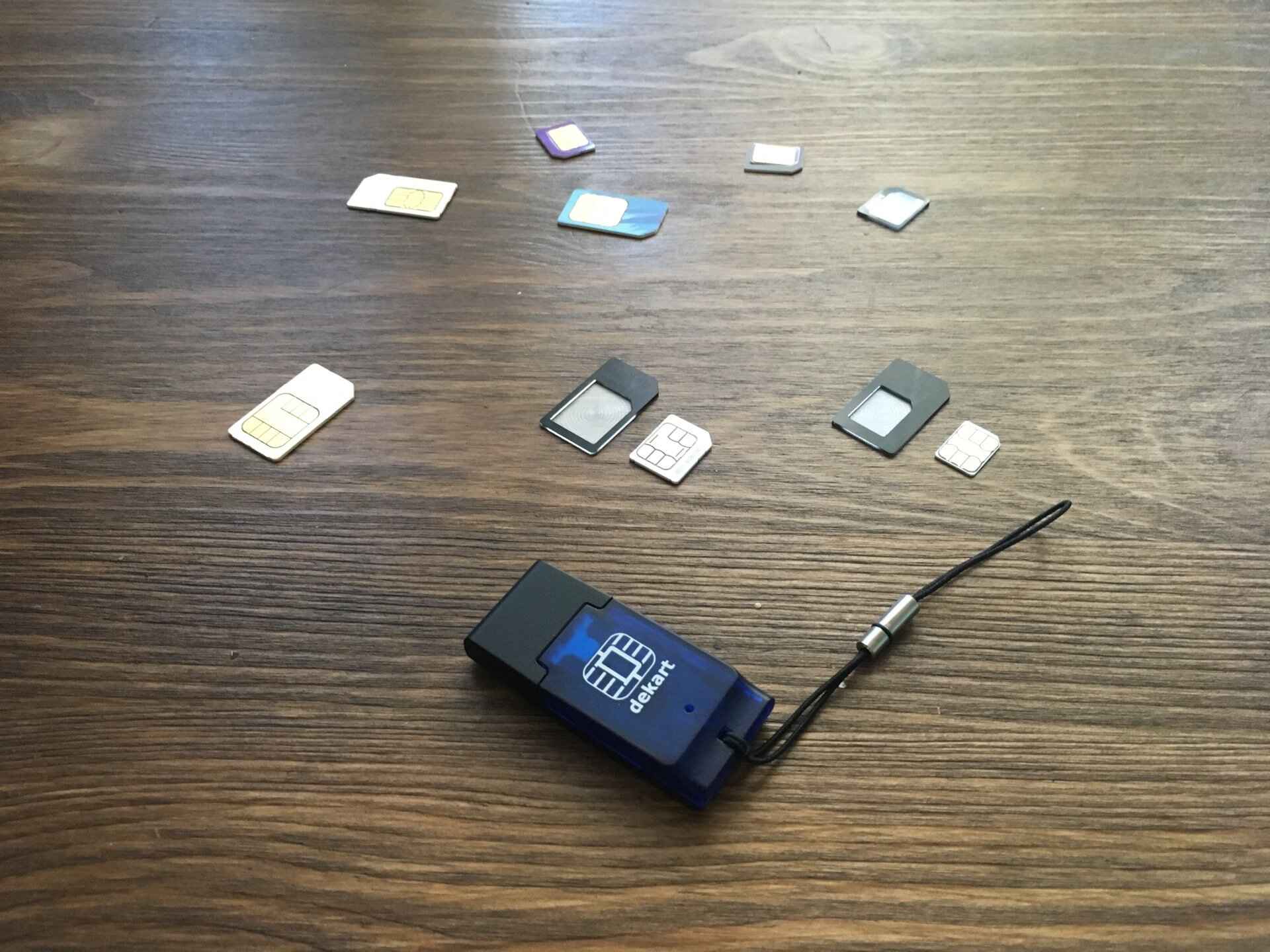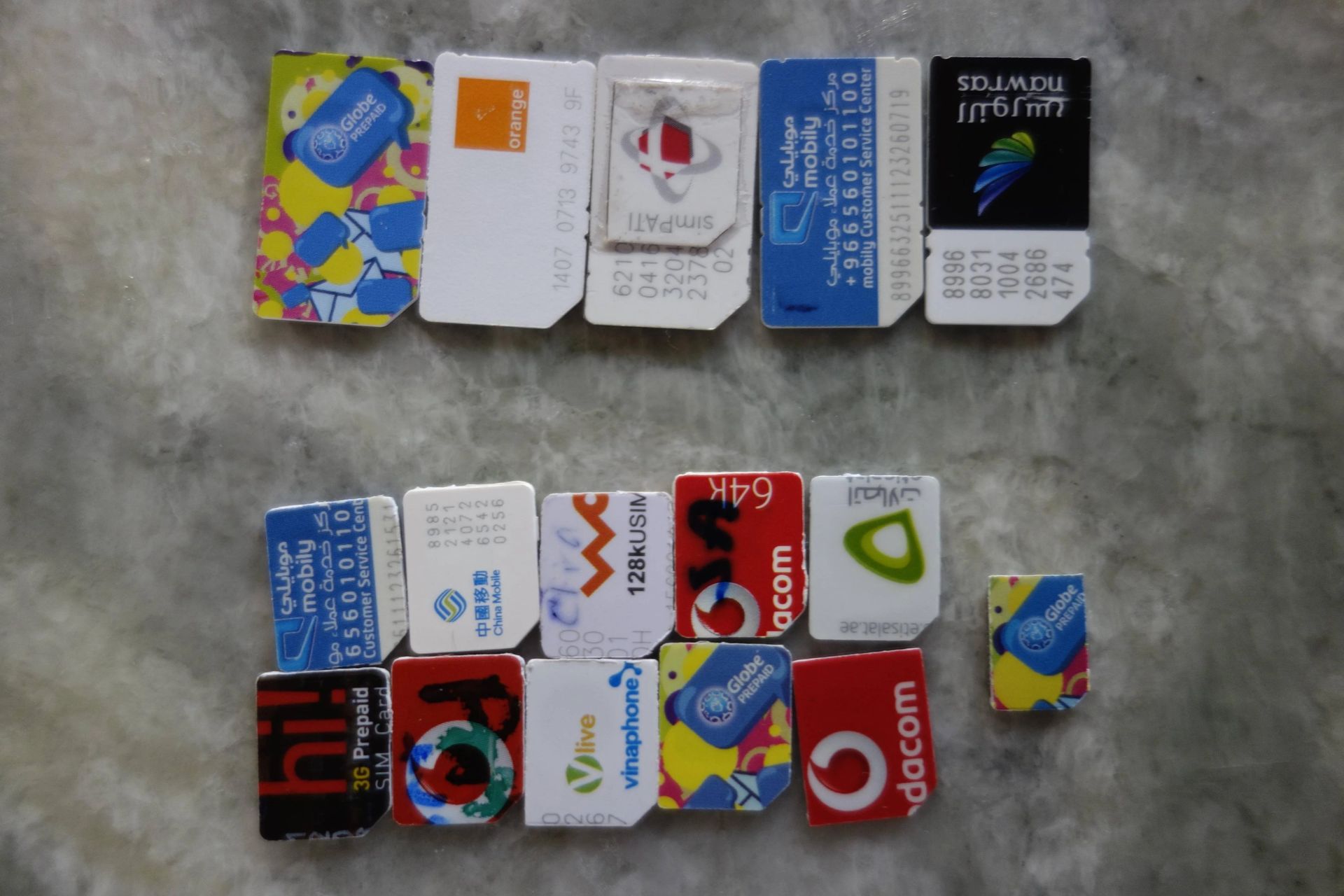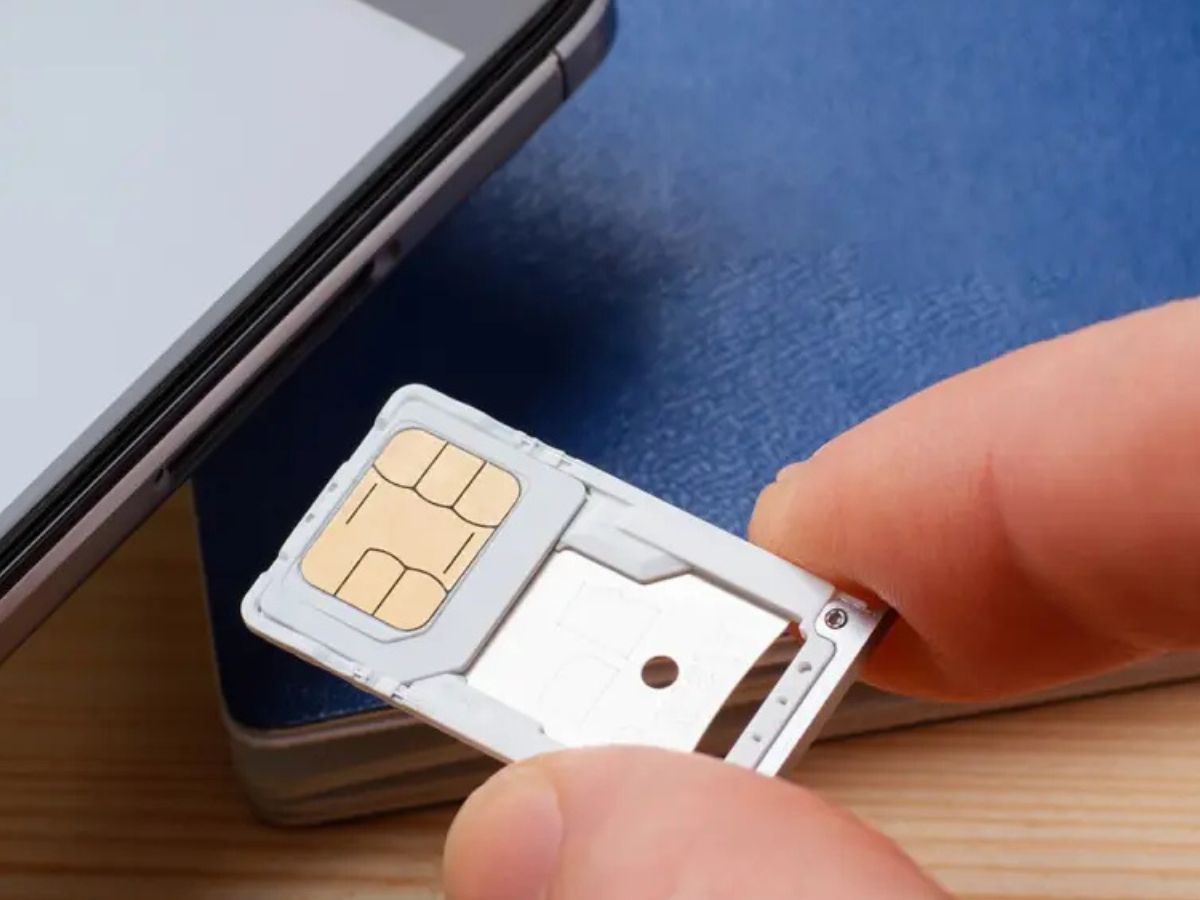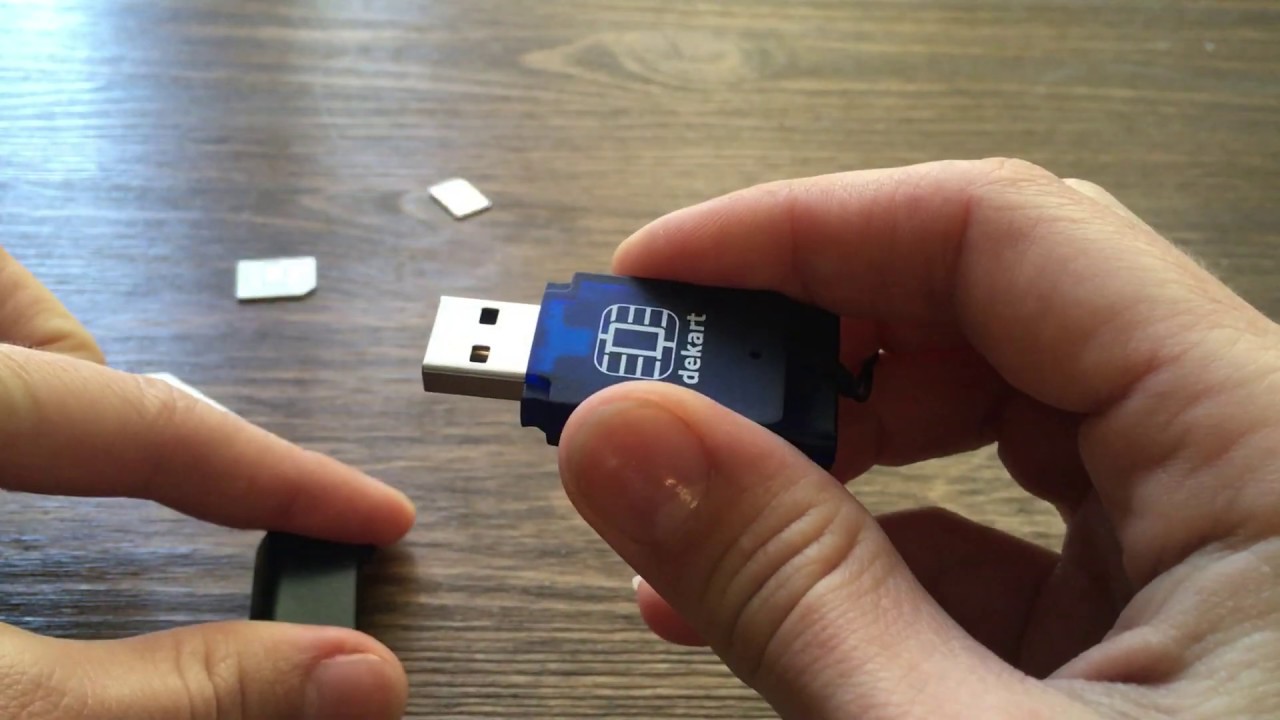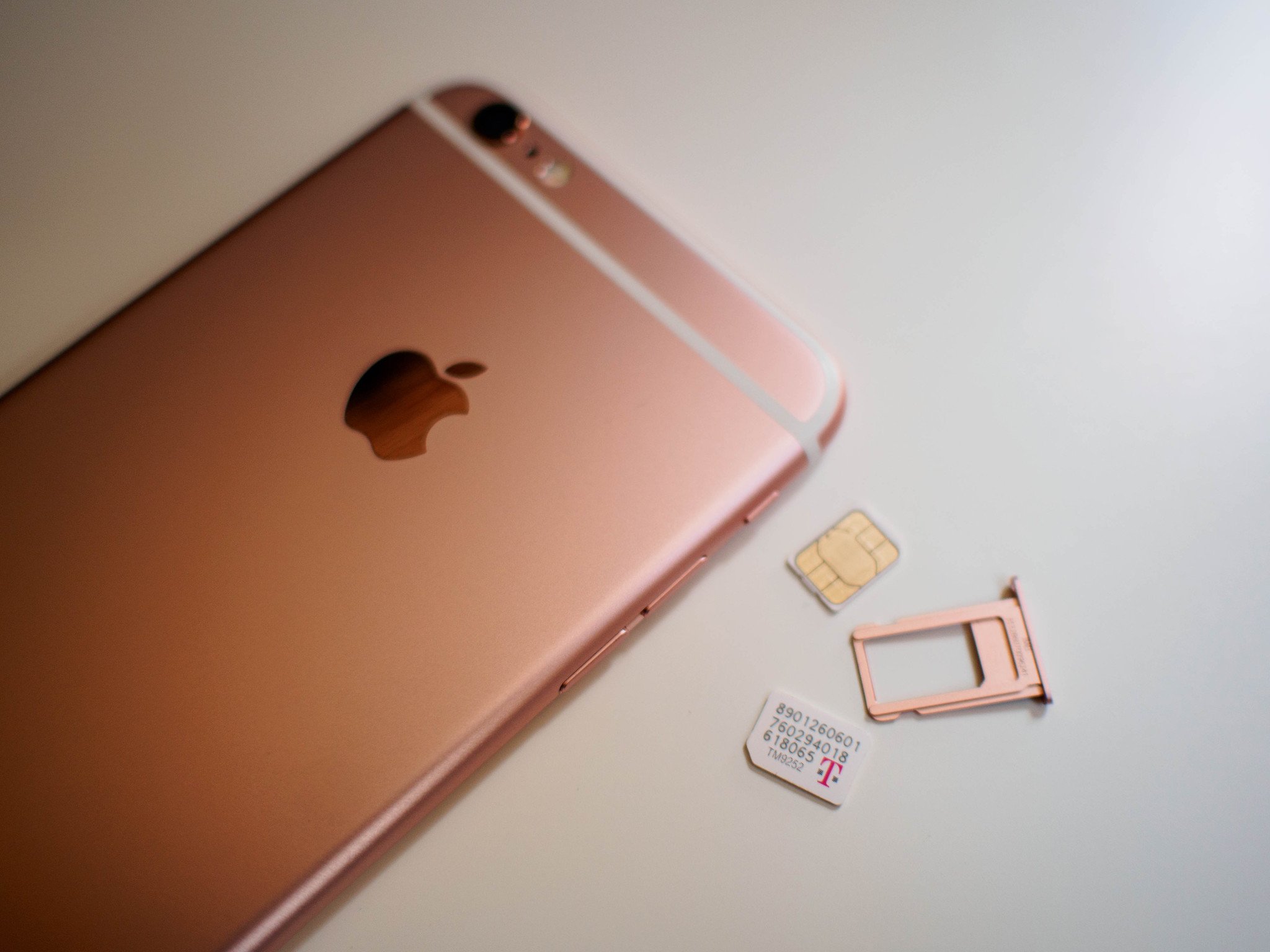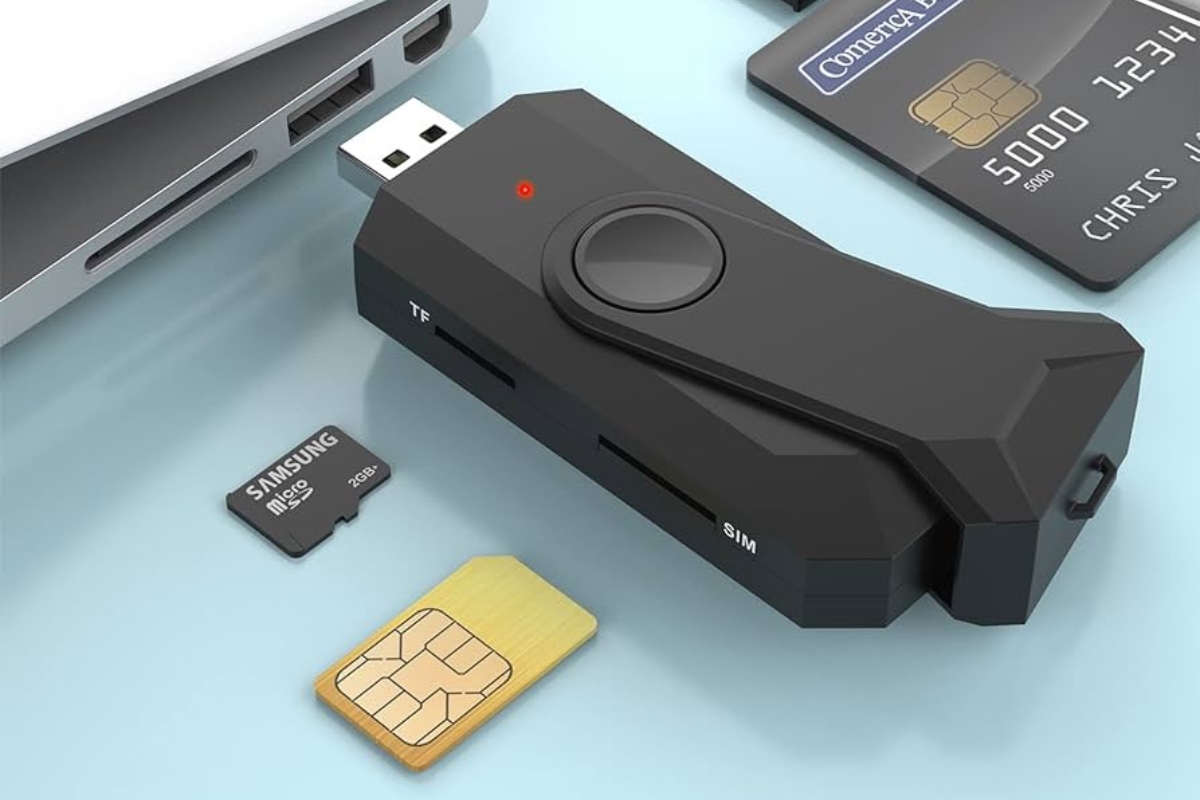Introduction
In today's digital age, the ubiquitous presence of mobile devices has revolutionized the way we communicate, access information, and conduct daily activities. At the heart of this technological marvel lies the SIM card, a tiny yet powerful component that plays a pivotal role in enabling seamless connectivity. Understanding the data stored on SIM cards is essential in comprehending the intricate mechanisms that drive our mobile devices.
The SIM card, short for Subscriber Identity Module, serves as the lifeline of mobile communication, housing a wealth of vital information that facilitates network access and user identification. From contact details and text messages to network-specific configurations, the data stored on SIM cards forms the backbone of our mobile connectivity.
As we delve into the intricacies of SIM card data, we uncover a world of information that not only empowers our devices but also raises pertinent questions about security, privacy, and data management. By shedding light on the types of data stored on SIM cards, the mechanisms of data storage, and the implications for security and privacy, we gain a comprehensive understanding of this fundamental component of modern mobile technology.
Join us on a journey to unravel the mysteries of SIM card data, exploring its significance in the realm of mobile devices and the implications it holds for users in an increasingly interconnected world. Let's embark on this enlightening exploration into the inner workings of SIM cards and the data they harbor, uncovering the secrets that underpin our mobile connectivity.
What is a SIM Card?
A SIM card, short for Subscriber Identity Module, is a small, portable memory chip that is inserted into mobile devices such as smartphones, tablets, and some feature phones. It serves as a unique identifier for the user within a mobile network, allowing the device to connect to the network and make calls, send messages, and access mobile data.
The SIM card contains essential information that is crucial for the functioning of the mobile device. It stores the International Mobile Subscriber Identity (IMSI), a unique number that identifies the user within the network. Additionally, the SIM card holds the Integrated Circuit Card ID (ICCID), a unique serial number that identifies the SIM card itself. These identifiers are fundamental in ensuring secure and seamless communication between the device and the mobile network.
Moreover, the SIM card stores network-specific information, including the Mobile Country Code (MCC) and Mobile Network Code (MNC), which are used to identify the mobile network operator. This data allows the device to connect to the appropriate network and access voice and data services.
In essence, a SIM card acts as a bridge between the user and the mobile network, enabling the device to authenticate itself and establish a secure connection for communication. Without a SIM card, a mobile device would be unable to connect to a mobile network and utilize the various services offered.
The evolution of SIM cards has led to the development of different form factors, including the traditional Mini-SIM, Micro-SIM, and the more recent Nano-SIM. These variations cater to the diverse design requirements of modern mobile devices while retaining the essential functionality of storing user and network information.
In summary, a SIM card is a fundamental component of mobile communication, serving as a unique identifier for the user within the mobile network and enabling seamless connectivity. Its role in storing essential user and network-specific data underscores its significance in the realm of mobile devices.
Types of Data Stored on SIM Cards
The data stored on SIM cards encompasses a diverse array of information that is integral to the functioning of mobile devices within a cellular network. Understanding the types of data housed within the SIM card sheds light on the depth of its significance in enabling seamless communication and network access.
-
Subscriber Identity: At the core of SIM card data lies the International Mobile Subscriber Identity (IMSI), a unique identifier that distinguishes the user within the mobile network. This identifier plays a pivotal role in authenticating the user's identity and enabling access to network services.
-
Integrated Circuit Card ID: The ICCID serves as a unique serial number that identifies the SIM card itself. This data is essential for distinguishing one SIM card from another and is crucial in ensuring the secure and accurate provisioning of network services.
-
Authentication Key: SIM cards store authentication keys that are used to verify the identity of the user and the mobile device when connecting to the network. These keys play a crucial role in establishing secure communication and preventing unauthorized access to network services.
-
SMS and Contacts: SIM cards have the capacity to store a limited number of text messages and contact details. This feature allows users to retain essential contact information and access text messages even when switching to a different device.
-
Network-Specific Information: The SIM card holds network-specific data, including the Mobile Country Code (MCC) and Mobile Network Code (MNC), which are essential for identifying and connecting to the mobile network operator. This information ensures that the device can seamlessly access voice and data services within the designated network.
-
Security and Encryption Data: SIM cards contain security features and encryption data that safeguard the integrity of communication and protect sensitive information from unauthorized access. These security measures play a critical role in maintaining the confidentiality and privacy of user data.
The diverse types of data stored on SIM cards collectively form the foundation for secure and seamless mobile communication. From user identification to network authentication, contact storage, and security features, the data encapsulated within the SIM card serves as a cornerstone of modern mobile technology, empowering users with connectivity and safeguarding the integrity of their communication.
How Data is Stored on SIM Cards
The storage of data on SIM cards is a fascinating process that relies on the utilization of secure and efficient memory technology. SIM cards employ a specialized type of memory known as a Subscriber Identity Module (SIM) application, which is embedded within the card's integrated circuit. This unique form of memory allows for the secure storage of a diverse range of data while ensuring swift access and authentication within the mobile network.
The SIM application memory is structured into distinct compartments, each dedicated to storing specific types of data. These compartments include the following:
-
File Structure: SIM cards utilize a file-based storage system, similar to that of a computer's file directory. This structure enables the organization of data into discrete files, each with its own designated purpose. The files encompass various categories of information, such as user identity, network parameters, security keys, SMS messages, and contact details.
-
Dedicated Files: Within the file structure, specific files are allocated for storing critical data elements. For instance, the International Mobile Subscriber Identity (IMSI) is housed in a dedicated file, ensuring swift retrieval and authentication during network access. Similarly, the Integrated Circuit Card ID (ICCID) and authentication keys are stored in separate files, optimizing the efficiency and security of data retrieval.
-
Efficient Data Management: SIM cards employ a robust data management system that facilitates the seamless retrieval and modification of stored information. This system ensures that essential data, such as user identity and network parameters, can be swiftly accessed by the mobile device when establishing communication with the network. Additionally, the storage and retrieval of SMS messages and contact details are efficiently managed within the SIM card's memory, providing users with essential communication capabilities.
The storage of data on SIM cards is underpinned by stringent security measures, ensuring the integrity and confidentiality of the stored information. Encryption techniques are employed to safeguard sensitive data, preventing unauthorized access and ensuring the secure exchange of information between the SIM card and the mobile network.
In essence, the storage of data on SIM cards is a meticulously designed process that leverages specialized memory technology to securely house vital user and network-specific information. By employing a structured file system and robust data management mechanisms, SIM cards serve as reliable repositories for a diverse array of data, enabling seamless connectivity and authentication within the mobile network ecosystem.
Accessing and Managing Data on SIM Cards
Accessing and managing data on SIM cards involves a meticulous process that encompasses the retrieval, modification, and storage of vital information housed within the SIM card's memory. This multifaceted endeavor plays a pivotal role in enabling users to harness the full potential of their mobile devices while ensuring the seamless operation of essential communication services.
Retrieving User Information
When a mobile device is powered on, it initiates the process of accessing the data stored on the SIM card. The device communicates with the SIM card, retrieving crucial user information such as the International Mobile Subscriber Identity (IMSI) and the Integrated Circuit Card ID (ICCID). These identifiers are essential in authenticating the user within the mobile network, enabling the device to establish a secure connection and access network services.
Managing Contact Details and SMS Messages
SIM cards provide users with the capability to store a limited number of contact details and text messages. Accessing and managing this data involves the utilization of the device's interface to view, add, edit, or delete contact information and messages stored on the SIM card. This functionality allows users to retain essential communication records and seamlessly manage their contacts, ensuring that vital information is readily available when needed.
Network Authentication and Configuration
The SIM card plays a crucial role in authenticating the mobile device within the network and configuring network-specific parameters. When accessing a new network or switching between mobile operators, the SIM card facilitates the authentication process, ensuring that the device can seamlessly connect to the designated network and access voice and data services. This seamless transition between networks is made possible through the efficient management of network-specific data stored on the SIM card.
Security and Encryption Management
Managing the security and encryption features of the SIM card involves ensuring the integrity and confidentiality of stored data. This includes the management of authentication keys and encryption algorithms that safeguard communication and protect sensitive information from unauthorized access. By effectively managing these security measures, users can trust in the secure exchange of information between their mobile devices and the mobile network, mitigating the risk of unauthorized intrusion.
In essence, accessing and managing data on SIM cards is a dynamic process that underpins the seamless operation of mobile devices within the cellular network. By efficiently retrieving user information, managing contact details and messages, facilitating network authentication, and ensuring robust security measures, SIM cards empower users with secure and reliable connectivity, enhancing the overall mobile experience.
Security and Privacy Concerns
The ubiquitous nature of SIM cards as custodians of sensitive user and network-specific data brings to the forefront critical security and privacy concerns. As the conduits of authentication, communication, and network access, SIM cards are entrusted with safeguarding the integrity and confidentiality of the data they store. Understanding the potential vulnerabilities and privacy implications is paramount in ensuring the secure utilization of SIM card technology.
Vulnerabilities and Threats
SIM cards are susceptible to a range of security threats, including unauthorized access, interception of communication, and exploitation of encryption vulnerabilities. The interception of communication transmitted between the mobile device and the network poses a significant risk, potentially leading to the compromise of sensitive information and the unauthorized manipulation of network services. Additionally, the exploitation of encryption vulnerabilities within SIM cards can expose user data to unauthorized entities, undermining the fundamental principles of data security.
Privacy Implications
The data stored on SIM cards, including user identity, contact details, and network-specific information, represents a treasure trove of personal and confidential information. The potential compromise of this data can have far-reaching privacy implications, impacting the confidentiality of communication, the integrity of user identity, and the security of network access. Moreover, the storage of sensitive information on SIM cards raises concerns regarding the potential misuse or unauthorized access to personal data, necessitating stringent measures to uphold user privacy.
Mitigation Strategies
Addressing security and privacy concerns associated with SIM cards necessitates the implementation of robust mitigation strategies. This includes the continuous enhancement of encryption protocols to fortify the confidentiality of stored data and thwart unauthorized access attempts. Furthermore, the adoption of stringent access controls and authentication mechanisms within SIM cards can bolster the resilience of user identity and network security, mitigating the risk of unauthorized intrusion.
Regulatory Compliance
The landscape of SIM card security and privacy is further shaped by regulatory frameworks that mandate the protection of user data and the enforcement of stringent privacy standards. Compliance with data protection regulations and industry standards is imperative in ensuring the responsible handling of sensitive information stored on SIM cards, fostering a culture of accountability and transparency in safeguarding user privacy and data security.
In essence, the security and privacy concerns surrounding SIM cards underscore the imperative of fortifying data protection measures, mitigating vulnerabilities, and upholding stringent privacy standards. By addressing these concerns through robust security protocols, privacy-enhancing technologies, and regulatory adherence, the integrity and confidentiality of SIM card data can be preserved, ensuring the secure and responsible utilization of this foundational component of mobile communication.
Conclusion
In conclusion, the intricate world of SIM card data encompasses a myriad of vital information that forms the bedrock of modern mobile communication. From user identity and network-specific parameters to security features and contact details, the data stored on SIM cards plays a pivotal role in enabling seamless connectivity and authentication within cellular networks.
The evolution of SIM card technology has ushered in a new era of mobile communication, empowering users with the ability to securely access voice and data services while safeguarding the integrity of their personal information. The structured storage of data within SIM cards, facilitated by robust memory technology and efficient data management systems, ensures the swift retrieval and authentication of essential information, enhancing the overall mobile experience for users.
However, the significance of SIM card data is accompanied by critical considerations regarding security and privacy. The vulnerabilities and threats that SIM cards face, coupled with the far-reaching privacy implications of potential data compromise, underscore the imperative of implementing robust mitigation strategies and adhering to stringent regulatory standards. By fortifying encryption protocols, enhancing access controls, and ensuring regulatory compliance, the integrity and confidentiality of SIM card data can be upheld, fostering a culture of responsible data protection and user privacy.
As we navigate the complexities of SIM card data, it becomes evident that this fundamental component of mobile technology not only enables seamless communication but also raises profound questions about data security and privacy. By delving into the intricacies of SIM card data, we gain a comprehensive understanding of its significance in the realm of mobile devices and the implications it holds for users in an increasingly interconnected world.
Ultimately, the exploration of SIM card data unveils a world of innovation, security challenges, and privacy considerations, highlighting the need for continuous advancements in data protection and privacy-enhancing technologies. As we embrace the transformative potential of mobile connectivity, it is essential to recognize the pivotal role of SIM card data in shaping the landscape of modern communication, inspiring us to navigate the complexities of data stewardship with vigilance and responsibility.







